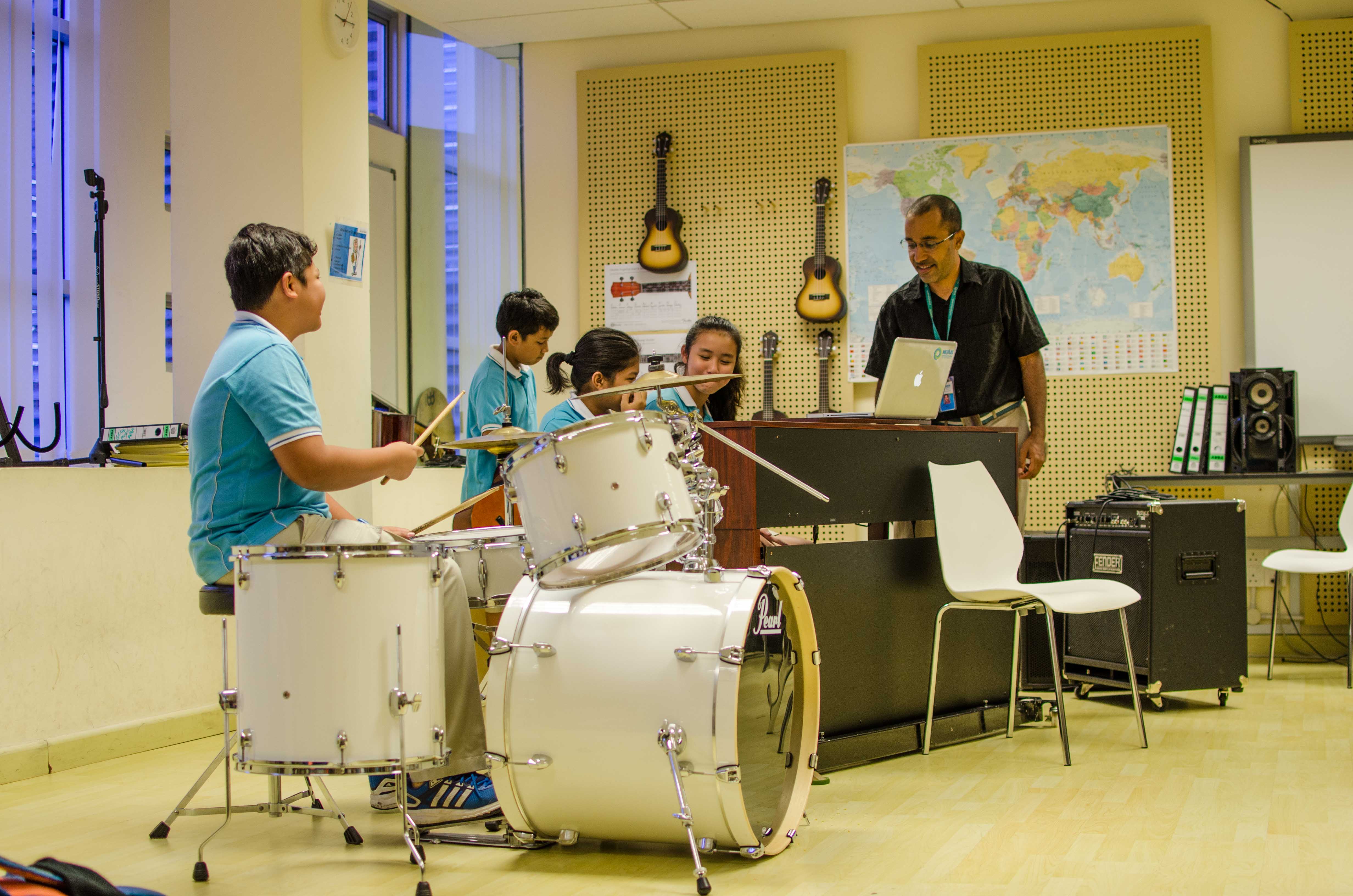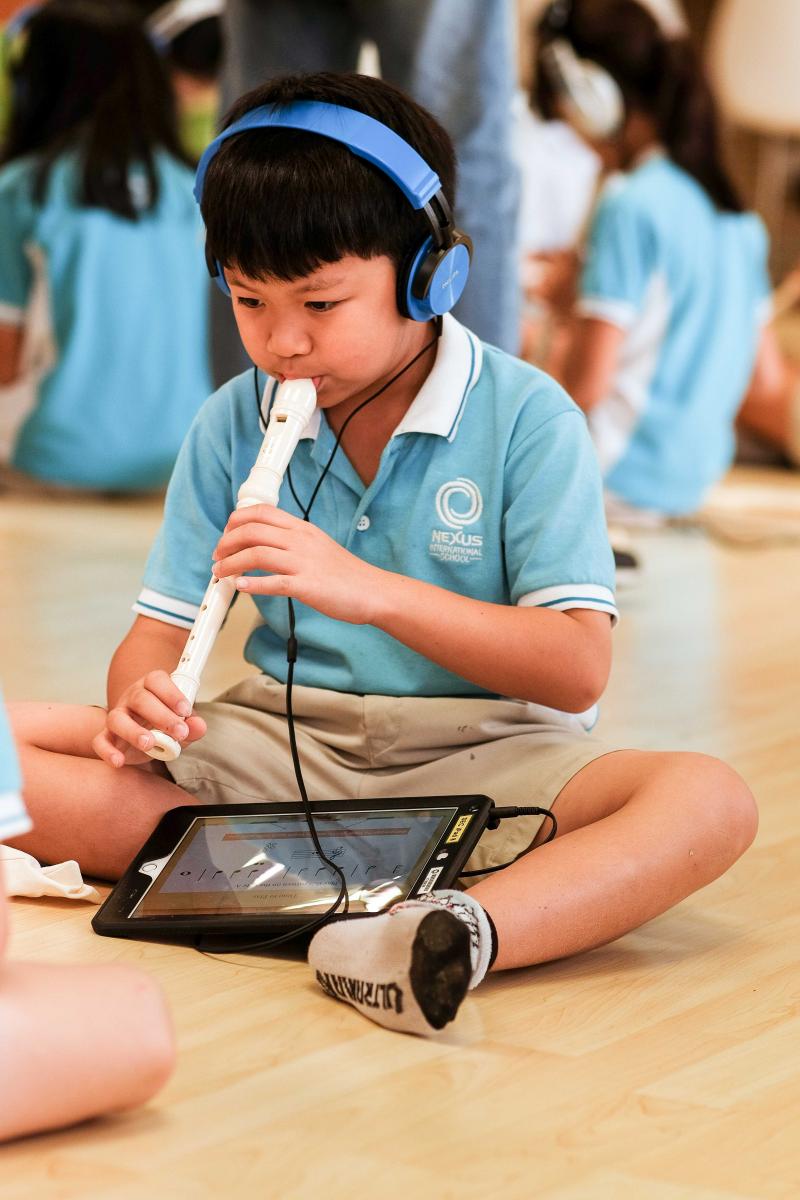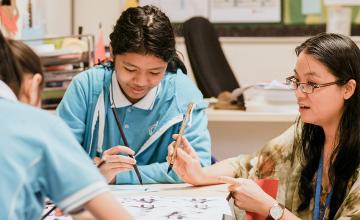5 Reasons Why Music Is Beneficial

May 9, 2017
Music is one of the life’s most treasured pleasures. From soothing music notes to soulful rhymes, music has a surprising way to bring out the best in all of us, including your children. During a child’s development stage, music has the capability to increase your child’s physical, emotional and intellectual levels. If you’re planning to nurture their love for music from an early age, here is how music can benefit your child’s development.

1. Speeds Up Brain Development
Music plays an essential role in boosting your child’s brain development especially language acquisition skills and reading abilities. For instance, learning lyrics of a new song helps to sharpen memorisation skills and accelerate language development. The perks are even better when a song originates from a culture different from theirs. It is also proven that listening to sound waves while learning can make the entire experience more enjoyable for learners.
2. Improves Mathematical Learning
The correlation between music and math may seem strange, but the outcome of this long debate has resulted in a new found method to encourage creative learning among children. Listening to music activates a section of the brain where it is used to solve spatial-temporal reasoning problems. It also increases the level of engagement when deciphering math equations and decoding numerical problems.
3. Boosts School Readiness
Who knew that one day we would associate music with our child’s school readiness? Intellectual, linguistic, social and emotional regions are areas of the brain that are said to be brighten up whenever music is on rotation. With music notes in the air, our child will become receptive, focus and ready to multitask different subjects in a single day.
4. Improves Motor Skills
The correlation between music and motor skill development is a well-known fact. Your child can reap the benefit of sharpening their movement, coordination and attention span in a single dance session or music instrument practice. Additionally, the sense of accomplishment your child will get from mastering a dance move or a music instrument will contribute to a boost of inner confidence.
5. Enhances Social Interactions
Music is a universal interest and enjoyed by everyone. Every music class your child attends will encourage them to socialise and interact with kids of the same interests. Some of the music classes include singing in a choir, forming a band or performing with the orchestra, which are essentially group activities. Sharing the stage and spotlight with their friends encourages collective team effort and social interaction.
Celebrating Music in Nexus
Music is one of the many pride and joy of Nexus International School, and our passion for rhyme and rhythm was celebrated through this year’s Spring Concert held on 29 March 2017. Shining the spotlight on traditional music, learners of all ages took the stage for a show-stopping musical performance dedicated to the audience of teachers, parents and distinguished guests.
Some of the concert highlights were the symphony of angklung (year 6), traditional gamelan composition (year 7), upbeat Brazilian percussion (year 8) and dramatic Chinese drums (year 9). The Spring Concert also included a 200-strong middle school choir and IB choir that were supported by string orchestra, jazz band, soloists and duets.

1. Speeds Up Brain Development
Music plays an essential role in boosting your child’s brain development especially language acquisition skills and reading abilities. For instance, learning lyrics of a new song helps to sharpen memorisation skills and accelerate language development. The perks are even better when a song originates from a culture different from theirs. It is also proven that listening to sound waves while learning can make the entire experience more enjoyable for learners.
2. Improves Mathematical Learning
The correlation between music and math may seem strange, but the outcome of this long debate has resulted in a new found method to encourage creative learning among children. Listening to music activates a section of the brain where it is used to solve spatial-temporal reasoning problems. It also increases the level of engagement when deciphering math equations and decoding numerical problems.
3. Boosts School Readiness
Who knew that one day we would associate music with our child’s school readiness? Intellectual, linguistic, social and emotional regions are areas of the brain that are said to be brighten up whenever music is on rotation. With music notes in the air, our child will become receptive, focus and ready to multitask different subjects in a single day.
4. Improves Motor Skills
The correlation between music and motor skill development is a well-known fact. Your child can reap the benefit of sharpening their movement, coordination and attention span in a single dance session or music instrument practice. Additionally, the sense of accomplishment your child will get from mastering a dance move or a music instrument will contribute to a boost of inner confidence.
5. Enhances Social Interactions
Music is a universal interest and enjoyed by everyone. Every music class your child attends will encourage them to socialise and interact with kids of the same interests. Some of the music classes include singing in a choir, forming a band or performing with the orchestra, which are essentially group activities. Sharing the stage and spotlight with their friends encourages collective team effort and social interaction.
Celebrating Music in Nexus
Music is one of the many pride and joy of Nexus International School, and our passion for rhyme and rhythm was celebrated through this year’s Spring Concert held on 29 March 2017. Shining the spotlight on traditional music, learners of all ages took the stage for a show-stopping musical performance dedicated to the audience of teachers, parents and distinguished guests.
Some of the concert highlights were the symphony of angklung (year 6), traditional gamelan composition (year 7), upbeat Brazilian percussion (year 8) and dramatic Chinese drums (year 9). The Spring Concert also included a 200-strong middle school choir and IB choir that were supported by string orchestra, jazz band, soloists and duets.


